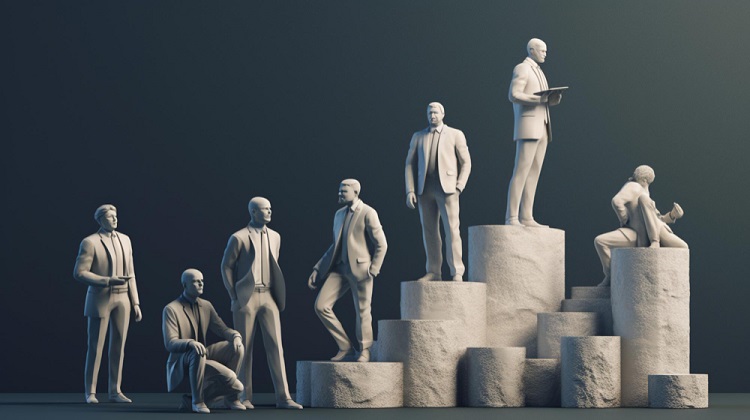Cultural Evolution: How Humans Have Adapted and Changed Throughout History
3 min read
The story of human evolution encompasses biological changes and the remarkable journey of cultural evolution. Cultural evolution is how societies and human behavior adapt and change over time. This transformation, marked by innovation and adaptation, reflects the ability of humans to shape and be shaped by their cultures. In this article, we’ll explore the fascinating world of cultural evolution and how Humans evolve through their ever-changing societies.
The Foundations of Cultural Evolution:
The roots of cultural evolution can be traced back to early human societies. Our ancestors, like Homo habilis, Homo erectus, and Neanderthals, demonstrated cultural behaviors by creating tools, using fire, and establishing rudimentary social structures. These early cultural developments laid the groundwork for the following diverse and complex cultures.
Language and Communication:
One of the most pivotal aspects of cultural evolution was language development. Communicating through spoken and written language enabled humans to convey knowledge, emotions, and experiences across generations. Language allowed for the preservation and transmission of culture, shaping the collective identity of societies.
Agriculture and Settlements:
The transition from a nomadic lifestyle to settled agriculture marked a significant turning point in human history. Approximately 10,000 years ago, the Neolithic Revolution saw the emergence of agriculture and permanent settlements. This shift led to population growth, the rise of organized societies, and the creation of complex civilizations.
Also See: Revolutionizing Highway Lighting in Tunisia with Series H 60-Watt Solar Street Lights
Technological Advancements:
Technological innovations have played a crucial role in cultural evolution. From the invention of the wheel to the development of writing systems, technology has advanced how we live, work, and communicate. These innovations have not only transformed daily life but have also had far-reaching impacts on fields such as science, industry, and transportation.
Religion and Belief Systems:
The evolution of cultural beliefs and religious systems has shaped societies and influenced human behavior for millennia. These systems have provided explanations for the unknown, offered moral and ethical guidelines, and provided inspiration and solace. Religion and spirituality have played a central role in human culture and continue to do so.
Trade and Globalization:
The rise of trade networks and globalization has connected cultures across vast distances. The exchange of goods, ideas, and technologies has fostered cultural diversity and influenced societies worldwide. This interconnectedness has enriched human cultures and led to cross-cultural collaborations.
Social and Political Structures:
Cultural evolution has given rise to diverse social and political systems, from monarchies and democracies to communal living and nomadic tribes. These structures have shaped how societies organize and govern themselves and have impacted the distribution of power and resources.
Art, Literature, and Expression:
Cultural evolution has also found expression in art, literature, and creative endeavors. These forms of artistic expression have reflected societies’ values, beliefs, and emotions throughout history. They provide insights into the human experience and serve as a record of the cultural evolution of a given era.
The Modern Landscape:
Today, cultural evolution continues to shape our world. The rapid advancement of technology, globalization, and the interconnectedness of societies has created a dynamic and ever-changing cultural landscape. New challenges, such as the impact of digital culture and the preservation of traditional practices, are being explored in our modern context.
Also See:Innovation and Investment: Briansclub Role in Idaho
Conclusion:
The story of cultural evolution is a testament to human societies’ adaptability, creativity, and resilience. From our early ancestors to today’s globalized world, cultural evolution has driven our ability to adapt and innovate in the face of changing circumstances. It has allowed us to create, communicate, and connect across time and space, shaping our understanding of who we are as a species.
Cultural evolution is an ongoing narrative, with each generation contributing to the ever-evolving tapestry of human culture. The ability of Humans to Evolve and adapt through cultural change reflects the rich diversity of human experiences and the shared history that binds us together as a global community.







